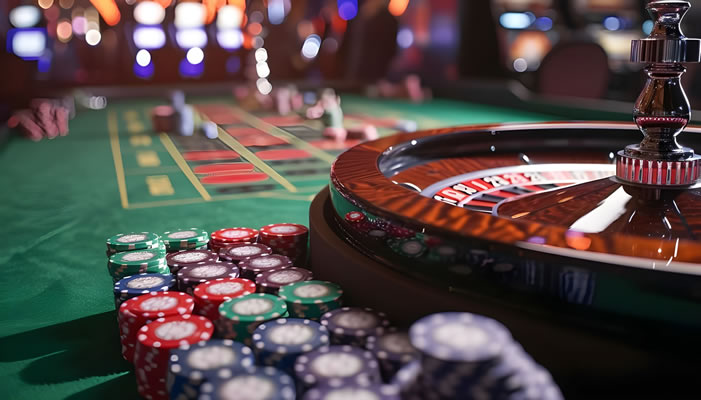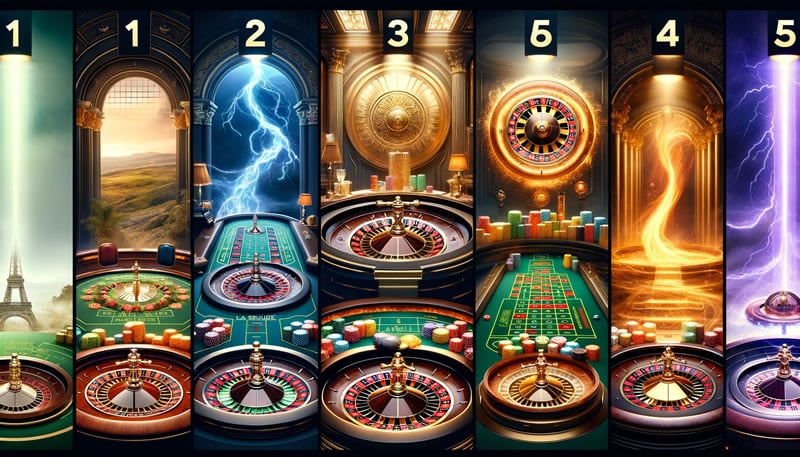The allure of the jackpot is so strong that people from all walks of life find themselves captivated by it. It presents a nearly irresistible pull is the possibility of winning a sizable quantity of money through casino games, participating in lotteries, or other games of chance. For countless individuals worldwide, the dream of achieving sudden wealth and gaining financial independence overnight holds great appeal. Several psychological factors play a role in the jackpot's attraction.
Main Points
- Why jackpots captivate us: The excitement of landing a huge win draws people in because of the potential for life-changing rewards.Dopamine and the jackpot effect: The brain's response to potential gains, such as winning a jackpot, is driven by the release of dopamine, creating a sense of pleasure and drive.The role of risk and reward: The attraction to jackpots stems from the combination of risk and potential reward, activating the brain's reward system.The psychology of hope and optimism: The chance of a big win influences our outlook, fostering a sense of hope and positive expectation for the future.Social and cultural influences: The jackpot’s appeal to us is influenced by societal values, cultural expectations, and social influences.
The ability to indulge in luxuries without financial concerns and the possibility of financial liberation is highly appealing to many. The attraction of potentially being able to afford anything, such as luxurious clothing or far-flung travel, pushes individuals to strive for big successes. In addition, a major part of the jackpot's appeal stems from its element of surprise & unpredictability. The rush can’t easily be replicated the adrenaline rush that is produced by the prospect of striking it lucky with a single lottery ticket purchase or by spinning the wheel for a large payout. The allure of the jackpot also appeals to our innate desire for risk-taking and excitement.
The chance of getting rich offers the promise of a thrilling new life beyond the monotony of daily life. Many people are motivated to chase after huge jackpots because they feel a deep connection in the concept of taking a risk & possibly coming out on top. The thrill of making a big wager or the suspense of anticipating the outcome are just two examples of how people are drawn to jackpots because they tap into the natural human desire for thrills and adventures. The Function of Dopamine in Expecting Rewards. Dopamine is critical in attracting us to potential rewards, which is why jackpots are so alluring.
A neurotransmitter called dopamine is released in reaction to enjoyable moments like indulging in delectable food, engaging in fun activities, and yes, winning big. Dopamine is essential in the brain's reward circuits. Dopamine is triggered in our brain in anticipation of a possible reward, like winning the lottery, which feels great and pushes us to seek more rewards. The Dopamine-Propelled Chase of Massive Victories. There’s a powerful drive to look for chances for large wins by the strong psychological pull that is fueled by dopamine production live casinos providers in response to possible rewards.
The possibility of winning a massive prize causes the brain to release a large amount of dopamine, which creates a rush of euphoria and excitement. It is this dopamine-driven reaction to possible rewards that drives our desire to take risks in the hopes of landing a big win & draws us to jackpots. The dark side of dopamine: dopamine’s downside. The brain releases dopamine in a cascade when one is expecting great success, which can create an extremely addictive feeling of hope and excitement. Some people develop an addiction to gambling, which can be explained by dopamine's role in our draw to jackpots. A strong psychological pull that can result in compulsive behavior & an inability to resist the allure of big wins is driven by the dopamine released for potential rewards.
Humans' innate drive for risk is closely tied to the the lottery's attraction. The possibility of striking it rich is a high-stakes game that appeals to our deep need for risk and excitement. Our attraction to jackpots is driven by the risk and excitement that comes with going after big victories. Lots of people are motivated by the concept of risk-taking and possibly earning huge rewards, which motivates them to take chances in the hopes of claiming the grand prize. Humankind’s history as early humans may also be used to explain the role that risk and reward play in attracting us to jackpots.
Taking chances has been crucial to human survival throughout our evolutionary past because it frequently meant the difference between gathering food and going hungry. Because our ancestors found this behavior beneficial in securing resources, it is ingrained in our brains to look for opportunities with high rewards. Our natural desire for risk and reward continues to influence us today, causing us to be drawn to jackpots and urging us to take more risks in the hopes of hitting big.

Our attraction to jackpots is driven by risk & reward, which relates to our need for independence and control over our own lives. The potential for wealth offers the chance to live life without limits and according to one's own terms. The prospect of taking a chance and possibly making huge gains appeals to our innate need for independence and self-determination, which drives us to chase big rewards in the quest for financial freedom. A huge part of jackpot allure is the optimism and hope that big wins inspire. The possibility of striking it rich provides a ray of hope for a brighter future, which bolsters our confidence and inspires us to aim for large wins.
It is difficult to resist the sense of hope that comes from the idea that one lucky moment has the potential to improve our lives. The potential for great wealth draws on our desire for optimism and hope, pushing us to take risks in the quest for future prosperity and stability. The psychology of optimism and hope also deeply influences our mindset in the pursuit of big wins.
We are energized by hope and we are inspired to keep chasing after large wins despite the odds when we have the possibility of winning the jackpot. This feeling of anticipation can be highly addictive. We take risks in search of financial security because we have an unshakeable sense of hope that one fortunate break could change our future. The influence of optimism & hope on our thinking regarding jackpots also connects to our innate need to be in charge of our life choices. Our optimism is fueled by the possibility of striking it rich, which inspires us to take risks in the pursuit of financial independence and freedom from financial constraints. We can't ignore the power of social and cultural pressures on our attraction to jackpots.
We are bombarded with messages that reaffirm the appeal of getting rich, with media portrayals of sudden wealth to societal norms to achieve financial wealth. Our view of jackpots are shaped by cultural and social messages, which also feed our addiction to jackpots and encourage us to gamble in the pursuit of money. Social pressure and social norms are just two more examples of how cultural pressures shape our attraction to jackpots. Chasing big wins is seen as an admirable, glamorous, and thrilling endeavor in various social groups.
Individuals might gamble more in an effort to win approval or impress others by experiencing the pressure to keep up with friends or coworkers who have made money through gambling. The human desire for recognition is further evidenced by the societal influences on our draw to jackpots. The reason we crave jackpots and pushes us to gamble in the hopes of hitting the jackpot is the possibility of becoming wealthy and well-recognized, which can further improve one's social status. The Addictive Nature of Jackpot Pursuits. The dopamine-driven reaction to prospective rewards can create a dangerous cycle that pushes people to take on more risk in the hopes of winning big, frequently at great personal expense.
Chasing losses can create a harmful pattern that can devastate an individual's financial stability and overall happiness. Jackpots' Dark Side: Mental Health Effects. Pursuing big wins can have detrimental effects on personal relationships and mental health in addition to financial losses. People who develop an addiction to gambling frequently struggle with ever-growing debts & other financial difficulties, which can create anxiety, depressed, and feelings of despair.
In addition, chasing jackpots can strain bonds with friends & family, leaving one feeling alone & isolated. The necessity of Support & Awareness. The dangers of chasing jackpots highlight that individuals struggling with addiction need compassion and assistance.

Society must recognize the risks of gambling and provide help to those in danger of addiction. By doing this, we can endeavor to establish a setting that is safer and more encouraging for people who might be having trouble the temptation of jackpots. Create healthy gambling habits to allow people to control the emotional impact of jackpot chasing.
Limiting the time spent and money spent on gambling can help people stay away from compulsive behavior patterns and reduce the risks in gambling for big wins. For individuals struggling with gambling addictions linked to chasing jackpots, seeking support from friends, family, or trained professionals can be a great resource. Individuals can protect themselves from falling into addiction by adopting healthier coping strategies for handling stress and emotional triggers.

People can experience the excitement of chasing large wins without giving in to the negative effects of compulsive gambling behavior by comprehending the psychology underlying our attraction to jackpots & cultivating responsible, healthy gambling habits.
FAQs
Why are we drawn to huge jackpots?
Our interest in large jackpots stems from the brain's reward system. When we think about winning big, our brains release dopamine, a neurotransmitter linked to joy and reward. This surge of dopamine creates a feeling of excitement and anticipation, making it addictive.
Why do people continue to play for jackpots even after experiencing losses?
Gamblers keep playing despite losses because of the effect of near-miss events. When players almost win, it triggers a surge of dopamine just like that of an actual win. This near-miss experience fuels hope and drives them to keep playing, despite previous losses.
How does social pressure fuel jackpot attraction?
Social factors are key in the attraction to winning big jackpots. The visibility of jackpot winners in the public eye and among friends can create a sense of social proof, leading individuals to believe that winning is achievable and worth pursuing. Additionally, the joy and celebration around big wins can influence others to participate in similar activities.
Are there any potential negative effects of the attraction to winning big jackpots?
Craving big wins can have negative consequences, particularly when gambling becomes addictive. Excessive gambling in pursuit of big wins can result in financial strain, damage personal relationships, and mental health issues. Additionally, the craving for jackpots can lead to unrealistic expectations and a distorted perception of probability.
What are healthy ways to handle jackpot attraction?
You can keep jackpot cravings under control in a healthy way by setting limits on their gambling behavior, gambling responsibly, and seeking support if they suspect their interest is turning into an issue. It's important to approach gambling activities with a balanced perspective and enjoy it for fun over the pursuit of large wins.